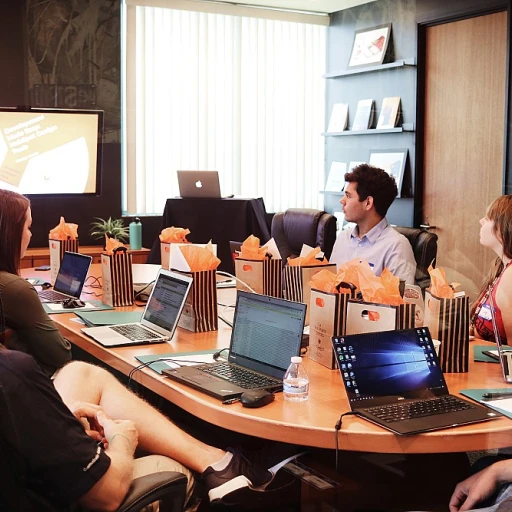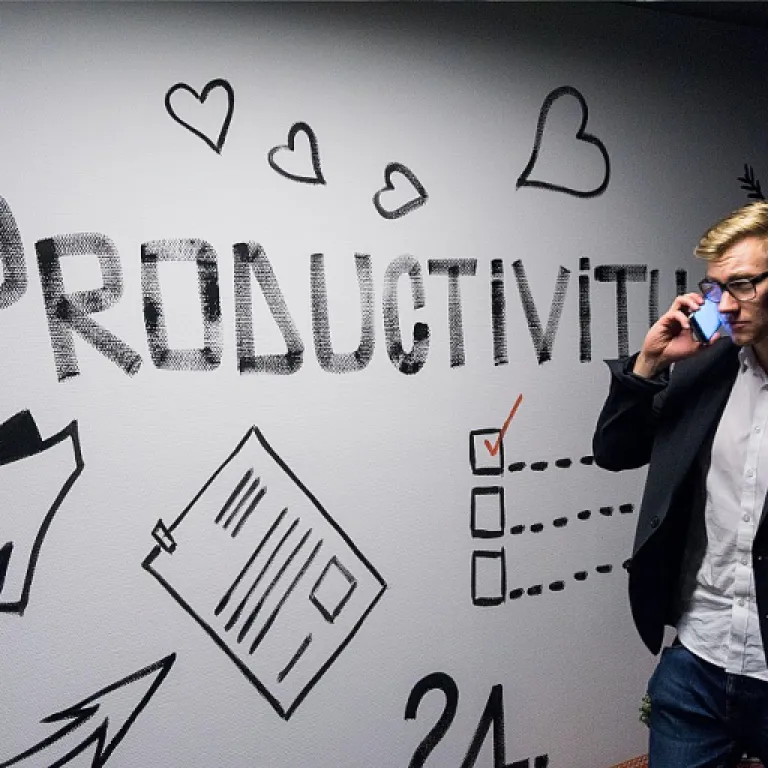
Understanding the Inquiry Cycle
Grasping the Concept of the Inquiry Cycle
The inquiry cycle is a foundational concept in the realm of reskilling, offering a structured approach to learning that can be transformative for both students and educators. This cycle is not just a method but a mindset that encourages continuous exploration and reflection. Understanding this cycle is crucial for anyone embarking on a reskilling journey, as it provides a framework to identify and address skills gaps effectively.
At its core, the inquiry cycle involves a series of stages that guide learners through a process of questioning, investigating, and reflecting. This cycle is iterative, meaning that it encourages ongoing learning and adaptation. By engaging with this cycle, students learn to think critically and develop a deeper understanding of the skills they need to acquire.
For educators and teachers, the inquiry cycle offers a way to support students in their learning experiences. It emphasizes the importance of prior knowledge and encourages the use of thinking routines to foster deeper understanding. This approach aligns with the principles of inquiry-based learning, where students are active participants in their education, rather than passive recipients of information.
Incorporating the inquiry cycle into reskilling efforts can lead to more effective teaching and learning outcomes. It allows for the development of success criteria that are tailored to individual learning objectives, ensuring that students will not only acquire new skills but also understand how to apply them in real-world contexts.
For those interested in enhancing their worker capital through reskilling, understanding the inquiry cycle is a vital step. It provides a roadmap for navigating the complexities of learning and adapting in a rapidly changing world. For more insights on this topic, you can explore enhancing worker capital through reskilling.
Identifying Skills Gaps
Pinpointing the Skills You Need
In the reskilling journey, identifying skills gaps is a crucial step in the inquiry cycle. This stage involves a deep dive into understanding what skills are missing and how they align with your career goals. It's about recognizing the areas where your current expertise may fall short and where new skills can open doors to new opportunities.
To effectively identify these gaps, consider the following approaches:
- Self-Assessment: Reflect on your current skills and compare them with the requirements of your desired role. This reflection process helps in understanding where you stand and what you need to learn.
- Feedback from Peers and Mentors: Engaging with colleagues, mentors, or educators can provide valuable insights into your strengths and areas for improvement. Their perspectives can highlight skills you might have overlooked.
- Industry Research: Stay updated with industry trends and demands. Understanding what skills are in demand can guide your learning objectives and ensure your efforts are aligned with market needs.
Identifying skills gaps is not just about recognizing deficiencies; it's about setting the stage for growth. This stage of the inquiry process is foundational, as it informs the subsequent steps of setting learning objectives and exploring learning resources. By clearly understanding your skills gaps, you can tailor your learning experiences to be more effective and targeted.
For more insights on accelerating change in your reskilling journey, consider exploring resources that delve deeper into this topic. Accelerating change in the reskilling journey can provide further guidance on how to navigate this critical stage.
Setting Learning Objectives
Building Learning Objectives for Success
Once you have a clear grasp of the skills gaps, the next step in your reskilling journey involves setting precise learning objectives. This approach is vital for directing your inquiry process and ensuring a structured path for your learning experiences. By aligning these objectives with the identified gaps, educators and learners can enhance the effectiveness of their learning journey, tailoring routines to support student learning.
Clear objectives guide the cycle of inquiry-based learning, providing a roadmap for students and teachers alike. To ensure these objectives are meaningful and attainable, consider employing the following guidelines:
- Specificity: Tailor your objectives to be specific, addressing particular skills or knowledge areas that need enhancement. This precision will support students as they hone their abilities.
- Measurable Goals: Define success criteria that can quantify progress. This will not only help in evaluating and reflecting on progress, but it will also support students in understanding their development trajectory.
- Attainable Targets: Ensure that the goals set are realistic and achievable within the given timeframe. Challenging yet attainable objectives motivate and encourage student learning without causing unnecessary frustration.
- Relevance: Align objectives with the overall goals of the reskilling process, making sure they resonate with both current industry trends and individual aspirations. This relevance fuels student motivation and engagement.
- Time-bound: Set deadlines that instill a sense of urgency and structure, promoting consistent inquiry and ensuring the cycle proceeds efficiently.
Employing these guidelines contributes to a balanced inquiry cycle, enabling students to engage fully and make meaningful conclusions about their progress. By understanding the importance of thoughtful objective setting, you lay the groundwork for effective implementation of new skills in the subsequent stages of reskilling. For further insight into the complexity and abbreviations in this process, explore more about understanding training abbreviations in reskilling.
Exploring Learning Resources
Discovering the Right Tools and Resources
The journey of reskilling involves a crucial stage of exploring learning resources. At this stage, students, educators, and professionals alike dive into the vast array of educational materials available to support the learning inquiry. Success in this endeavor often hinges on a comprehensive understanding of the resources and methods that are most effective for addressing specific skills gaps illuminated in earlier stages of the inquiry cycle. When thinking about enhancing skills, it's essential to consider a variety of resources. Traditional educational materials, such as textbooks and lectures, have their place. However, in today's interconnected world, educators and learners have an abundance of digital tools at their fingertips. Online courses, webinars, and interactive platforms provide dynamic learning experiences tailored to different learning styles and preferences. Reflecting on the role of teachers and instructors in this stage highlights the importance of teaching learning strategies that are inquiry-based. Teachers act as guides, facilitating student learning processes by incorporating concepts of inquiry learning and thinking routines in their teaching methodologies. These approaches foster a deeper understanding and encourage students to engage with the material actively, ensuring they're not just passive recipients of information but active participants in the learning cycle. Moreover, students will benefit from integrating reflection and critical thinking into their learning routines. This enables them to assess prior knowledge and update their understanding as they navigate different learning resources. Through this process inquiry, they can make meaningful connections, draw conclusions, and fully develop the new skills they're pursuing. Ultimately, the range and quality of learning resources chosen significantly influence the outcomes of the reskilling journey. By supporting students through well-curated materials and structured inquiry processes, educators and learners can achieve a deeper understanding and mastery of new skills.Implementing New Skills
Mastering the Practical Application of Acquired Skills
The journey from understanding the complexities of the inquiry process to applying new knowledge is integral for students, educators, and professionals alike. In this stage, often dubbed the 'implementation phase,' individuals begin to weave their newfound skills into their everyday routines, marking an important shift from theory to practice. For students, these initial steps of implementation are akin to navigating a thoughtfully designed experiment where the principles of inquiry-based learning come into full play. Teachers and educators can offer significant support by devising authentic learning experiences that align with students’ prior knowledge and encourage practical application. Such experiences often act as an organic extension of their learning journey, seamlessly integrating with previously identified skills gaps. The role of educators is pivotal, as they adopt teaching strategies to instill thinking routines that promote reflection and critical thinking. Successful implementation relies heavily on clarity of purpose, often guided by success criteria that define what effective application looks like. Educators, in their support roles, facilitate this by fostering an environment where students feel comfortable to explore, experiment, and adapt their skills to real-world scenarios. For professionals, implementation can involve cross-functional application of skills within their workplace. This stakeholder-driven phase often demands clear communication across teams, ensuring everyone is aligned in their goals and expectations. It’s about cultivating a culture where the learning cycle is continuous, and innovation is encouraged. Implementing newly learned skills is not a linear process; it involves a cycle of informed decision-making, active application, and iterative reflection. Engaging actively in this stage can lead to tangible improvements in performance and confidence, as individuals see the direct impact of their efforts. It also prepares them for the subsequent phases of reevaluation and further inquiry, as they progress along their learning pathway. By actively engaging in this stage, participants of all kinds ensure that the cycle of inquiry does not end, but instead evolves with each iteration, making learning a continual, dynamic process.Evaluating and Reflecting on Progress
Reflecting on the Learning Journey
The final stage of the reskilling journey involves a critical process that emphasizes the importance of reflection and evaluation. Evaluating your progress allows you to understand the effectiveness of your learning experiences and helps in refining future strategies. Through reflection, learners and educators alike can benefit from reviewing the teaching-learning cycle. Educators can use thinking routines and inquiry-based approaches to support students. This reflection phase is pivotal in helping students learn from prior knowledge, experiences, and newly acquired skills. Consider these methods to evaluate and reflect on progress:- Inquiry and Feedback: Engage in discussions with peers or mentors to gain insights into your learning progress. This can enrich the inquiry cycle by introducing diverse perspectives and refining how you are making conclusions.
- Documenting Success and Challenges: Keep a record of the skills mastered and the hurdles faced during this learning process. This documentation will support students in identifying patterns or sticking points that need additional resources or strategies.
- Setting Success Criteria: Develop clear success criteria to measure the newly implemented skills' effectiveness. This aids in validating the desired outcomes and recognizes areas requiring further fine-tuning.
- Continuous Learning Mindset: Embrace the concept that the inquiry process is continuous. There's always room to evolve and adapt, reinforcing the importance of cycle inquiry in teaching and student learning.













